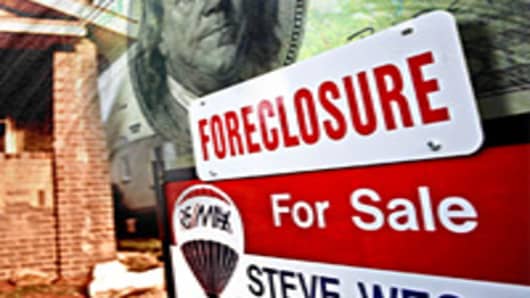"We believe that the largest players, such as Merrill Lynch and Citigroup, have rigorously and
conservatively valued their exposures to subprime asset-backed securities such that most of the damage should be behind them,'' S&P said in a statement.
It noted, however, that the positive impact of subprime disclosures is offset by worsening U.S. housing and credit markets.
Meanwhile, House Financial Services Committee Chairman Barney Frank, seeking to combat sharply rising home foreclosure rates, unveiled a bill that he said would allow the FHA "to insure and guarantee refinanced mortgages that have been significantly written down by mortgage holders and lenders."
In a draft, which he warned could change, the Massachusetts Democrat said his bill could refinance between 1 and 2 million distressed home loans by letting the FHA offer up to $300
billion in new loan guarantees.
It would also provide $10 billion in loans and grants to states to buy and fix distressed properties.
Frank said that, under his program, an existing lender or mortgage holder that agrees to write down the principal of a troubled loan could get "a short payment from the proceeds of a
new FHA loan if the restructured loan would result in terms that the borrower can reasonably be expected to pay."
"The existing lender or mortgage holder will have a cash payment and no further credit exposure to the borrower."
Under the program, he said, borrowers or loan servicers could contact an FHA-approved lender, who would then determine the size of a loan that would fit program requirements and that
the borrower could reasonably repay.
"If the current lender or mortgage holder agrees to a write-down that is sufficient to meet the requirements of the program and make the new loan affordable, the FHA-lender will
pay off the discounted existing mortgage," he said.
Several approaches are circulating in Congress to deal with falling home prices, rising foreclosures and slumping activity in credit markets. But no substantive action was expected until after lawmakers return from a spring recess that begins on Friday. Congress is scheduled to reconvene in early April.



